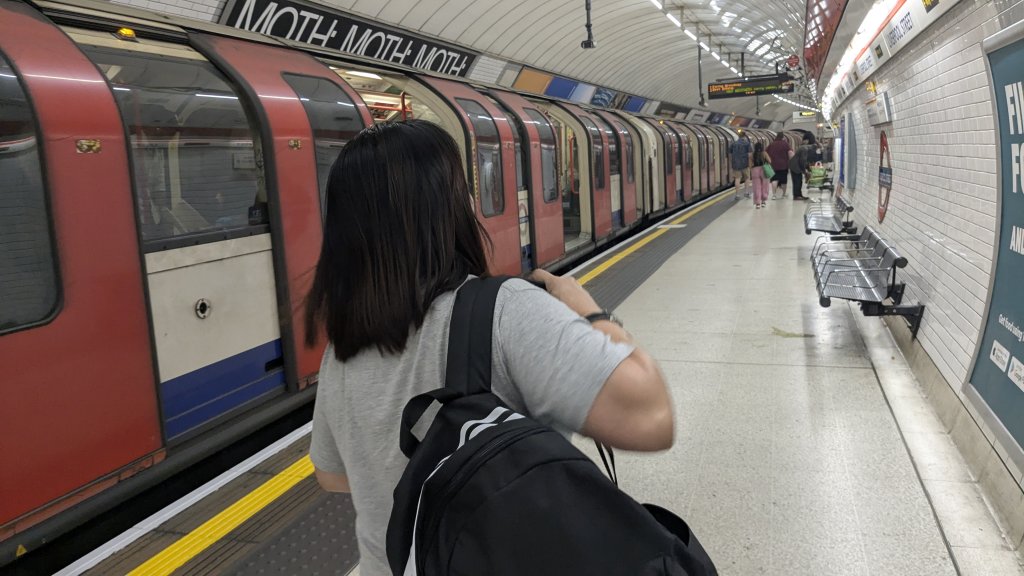Operation Sterling targets undocumented migrant workers in takeaways, delivery services, beauty salons, and car washes. Authorities say the crackdown is to remove access to undocumented work, which it describes as a key incentive for irregular migration.
Arrests for illegal working have soared to record highs as authorities carried out what it described as the highest level of raids in British history, the UK Home Office announced on Tuesday (October 28).
The number of arrests linked to unauthorized work rose by 63 percent under the government implementation of Operation Sterling, a 5 million British pounds (about 5.6 million euros) program, that aims to "target, arrest, detain, deport, and return illegal workers in takeaways, fast food drivers, beauty salons, and car washes."
The government said that Operation Sterling is meant to restore order to the immigration system and end the lure of illegal working that gangs use to sell spaces on small boats.
"Illegal working creates an incentive for people attempting to arrive in this country illegally. No more. Those found to be illegally working in beauty salons, car washes, and as delivery drivers will be arrested, detained and removed from this country," Home Secretary Shabana Mahmood said in a statement.
Read AlsoUK: Crackdown on unauthorized gig workers
Breakdown of arrests
Law enforcement authorities carried out more than 11,000 visits to businesses suspected of employing undocumented workers from October 1, 2024, to September 30, 2025, marking a 51 percent increase compared with the previous 12 months.
The Home Office data, updated on October 28, 2025, show that these operations led to over 8,000 arrests linked to unauthorized work, representing a 63 percent increase compared to the same period 12 months before.
A breakdown of the data provided by the Home Office indicates a high number of work raids and arrests in London. Out of the estimated 6,524 arrests related to unauthorized work in the UK made from January to September 2025, a total of 1.585 arrests related to unauthorized work were made in London. This represents about 25 percent of all arrests made in the country during that period.
Media reports provide a look into how arrests are carried out nationwide.

This week, the British public broadcaster, BBC, reported more than 590 arrests of people suspected of working illegally in Wales between October 2024 and September 2025. The arrests in Wales reportedly included seven Chinese nationals at a construction site.
Earlier this year, the BBC reported enforcement teams carrying out more than 800 raids in nail bars, car washes, and what is often referred to as "dark kitchens". Those who were arrested were reportedly working irregularly because they had entered the UK by crossing the English Channel or had a legitimately granted visa that had already expired.
Read AlsoUK report: Only safe, legal routes can break smugglers' model
New technology
The government is also bolstering the capability of Immigration Enforcement to make arrests and prosecutions through a series of measures that include giving more 1,200 frontline officers body cameras to collect evidence during illegal working raids, increasing prosecutions, and possible sanctions against exploitative employers.
An estimated three million British pounds (about 3.4 million euros) will go to provide fingerprint kits to enhance identity checks. More biometric fingerprinting kits will also be deployed to the frontline to check those detained during raids against police databases on the spot.
"The measures are part of this government’s plan to rip apart the business models of smuggling gangs and restore order to the asylum system, by processing claims and returning people swiftly while preventing people from making these dangerous journeys in the first place," the Home Office said in a statement.
The government also introduced new laws on illegal working through the Border Security, Asylum and Immigration Bill. This allows and extends Right to Work checks on those hiring gig economy and zero-hours workers in sectors like construction, food delivery, beauty salons, and courier services.
Digital ID
In April, more than 40 Members of Parliament signed an open letter calling for the introduction of a digital ID to manage the country's migration system.
According to the letter, a digital ID system, which is already used for other government services such as the National Health Service (NHS), would help the government in collecting taxes from "off-the-books" employment.
Jobs that are paid off-the-books refer to work that is typically paid in cash and not recorded or reported to the government, representing a potential loss in government income through taxes.
Often, people who are undocumented or do not have the authorization to work in the UK take on these jobs.

Some off-the-books jobs fall under the term "gig economy," where workers are paid for completing a certain task or a "gig". Delivery riders or car-sharing drivers are paid for each delivery or ride they complete rather than an hourly wage. Other jobs in the gig economy can include freelance work such as copywriting or translating.
Research that uses data from the UK Labor Force Survey (LFS) indicates that employees working within the gig economy in the UK is estimated at just under half a million people. In relation to a labor force of over 32.5 million, workers in the gig economy make up just 1.4 percent
While common gig jobs are delivery drivers, the study found that gig workers also include web developers, copywriters, and translators. The report also identified ethnic minorities and people with disabilities as two groups who rely mostly on gig work for their income.
Read AlsoUK: Parliamentarians push for digital ID to track and manage undocumented migrants
